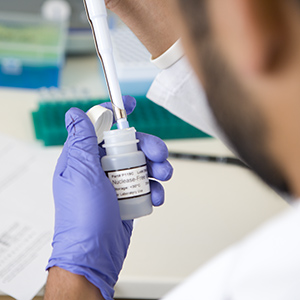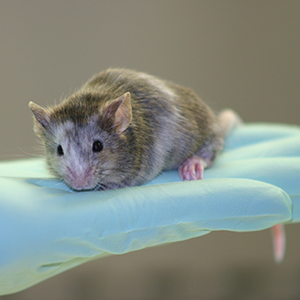Description
Targeted RNAi intervention treats several indications
So-Youn Kim, PhD, and Seok-Yeong Yu, PhD of the University of Nebraska Medical Center have developed an RNAi intervention to treat cachexia: a complex syndrome resulting in the progressive loss of muscle and fat. Cachexia is often observed with cancer, heart failure, diabetes and other chronic diseases.
Cancer patient data and animal studies show that cachexia is associated with elevated levels of a certain molecule in the blood called activin A. This molecule, specifically expressed by the INHBA gene, is normally involved in a number of cellular processes, including the creation of blood cells and connective tissue.
Targeting anti-INHBA siRNA constructs in a pancreatic ductal adenocarcinoma mouse study, yielded a decrease in activin A. This approach also prevented the rapid loss of body weight, slowed tumor growth and improved survival rates in pancreatic cancer-driven cachexia.
This intervention could treat a variety of diseases that exhibit increased levels of activin A in the blood, including cancer, autoimmune diseases, fibrotic disorders, blood disorders, allergies, heart failure, neurodegenerative diseases and inflammatory diseases.
To learn more about this technology, contact Amanda Hawley, PhD, at ahawley@unmc.edu or 402-310-5602.






